Luanda, the capital of Angola, is a dynamic city that beautifully combines nature, culture, and history. Nestled along the Atlantic coast, it features a mix of colonial architecture, modern skyscrapers, scenic beaches, and vibrant markets. Whether you’re exploring historic forts, relaxing on sun-kissed shores, or indulging in the local cuisine, there are countless places to visit in Luanda that cater to every traveller. From fascinating art galleries to breathtaking coastal views, this city offers diverse experiences at every turn. Below are 13 must-visit destinations in Luanda for an unforgettable journey.
13 Best Places To Visit In Luanda
Some of the most amazing places to visit in Luanda include stunning beaches, historic forts, cultural landmarks, lively markets, and scenic viewpoints.
1. Ilha De Luanda
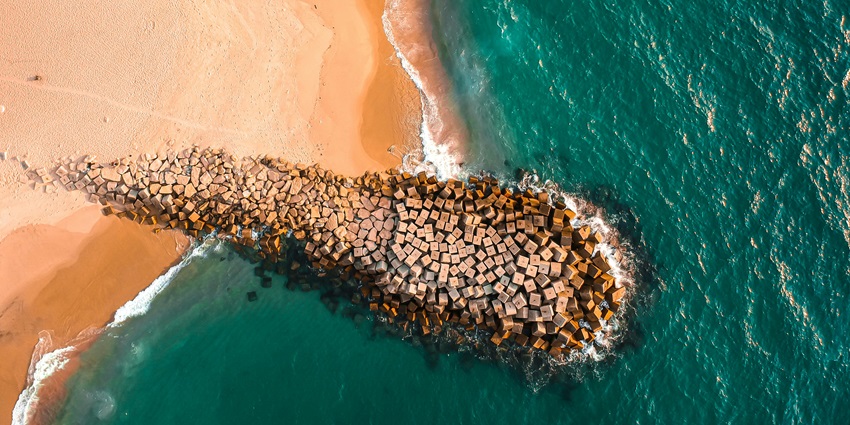
Photo: Mr IVBN / Pexels / Image For Representation Only
Ilha de Luanda is a vibrant peninsula known for its beautiful beaches, upscale resorts, and lively nightlife. A popular weekend getaway for both locals and tourists, it offers a variety of seafood restaurants, beach bars, and water sports activities which makes it a perfect tourist attractions in Luanda. Its scenic coastline is perfect for a relaxing stroll, while boat cruises provide stunning views of Luanda Bay. Whether you’re soaking up the sun, enjoying fresh seafood, or dancing the night away at beachfront lounges, Ilha de Luanda is an ideal destination to experience Angolan culture, hospitality, and entertainment.
Distance: 10 km from the city centre
Best Time To Visit: June to September
Suggested Read: Top Things To Do In Angola For An African Adventure
2. Fortaleza De São Miguel
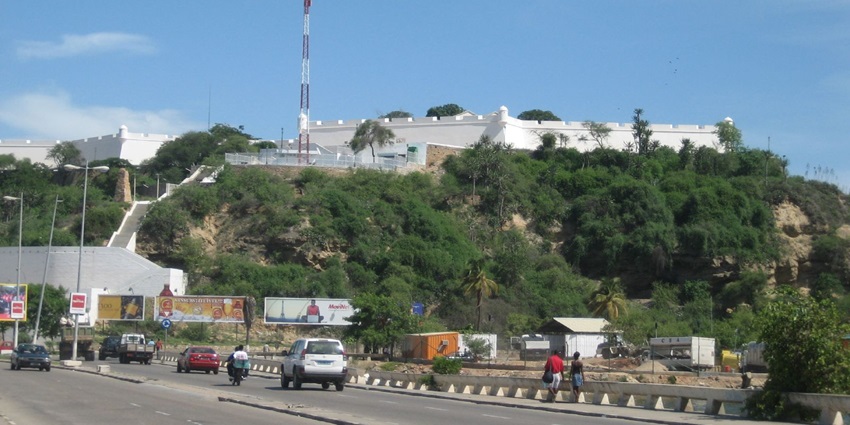
Photo: Erik Cleves Kristensen / Wikimedia Commons
Fortaleza de São Miguel turned into a base in 1576 and is one of the oldest sites in Luanda.The fort was originally constructed as a fortress of the Portuguese and was part of Angola’s colonial history. Today, the fort is converted into a museum that displays Angola’s history through statues, murals, and artifacts of the Portuguese explorers and is one of the famous Luanda tourist places. The fort offers panoramic views of Luanda’s port and skyline, and it is one of the best places for photographs. The place is toured by visitors who wish to witness its well-preserved architecture and learn about Angola’s journey to independence.
Distance: 5 km from the city centre
Best Time To Visit: October to April
3. Miradouro Da Lua
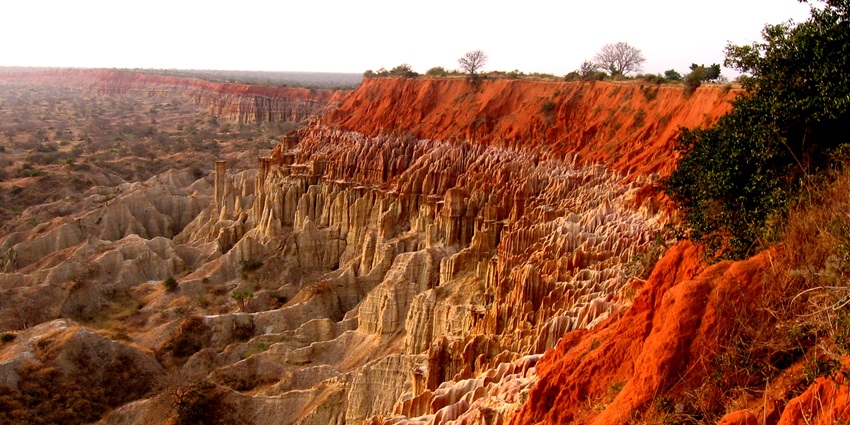
Photo: Paulo César Santos / Wikimedia Commons
Miradouro da Lua, or “Viewpoint of the Moon,” is a stunning natural landmark just outside Luanda and iconic tourist places in Luanda. Shaped by centuries of wind and rain erosion, its unique rock formations create a surreal, moon-like landscape. The changing light at sunrise and sunset enhances its dramatic appearance, making it a favourite spot for nature lovers and photographers. Overlooking the Atlantic Ocean, this scenic viewpoint offers a peaceful retreat from the city’s hustle. Whether enjoying a picturesque drive or simply taking in the breathtaking views, a visit to Miradouro da Lua is an unforgettable experience.
Distance: 40 km from the city centre
Best Time To Visit: June to September
Suggested Read: Places To Visit In Angola For A Serene Escapade
4. Museu Nacional De Antropologia
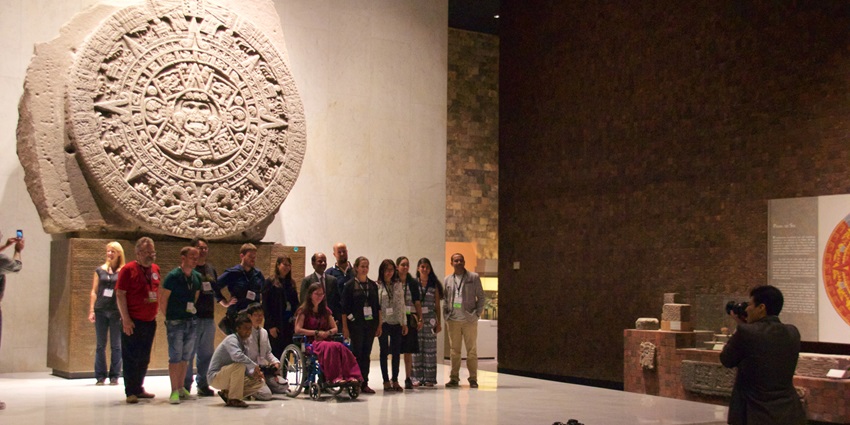
Photo: Mike Peel / Wikimedia Commons / Image For Representation Only
The Museu Nacional de Antropologia is a must to add in your Luanda tourist places list for those interested in Angola’s diverse cultural heritage. The museum houses an extensive collection of traditional masks, musical instruments, sculptures, and artifacts that showcase the country’s rich ethnic diversity. Visitors can explore Angola’s tribal traditions, belief systems, and historical practices through well-curated exhibits. Housed in a colonial-era building, the museum itself is a piece of history. Offering both educational and immersive experiences, it is an ideal destination for history enthusiasts and culture lovers seeking a deeper understanding of Angola’s heritage.
Distance: 3 km from the city centre
Best Time To Visit: Year-round
5. Mausoleum Of Agostinho Neto
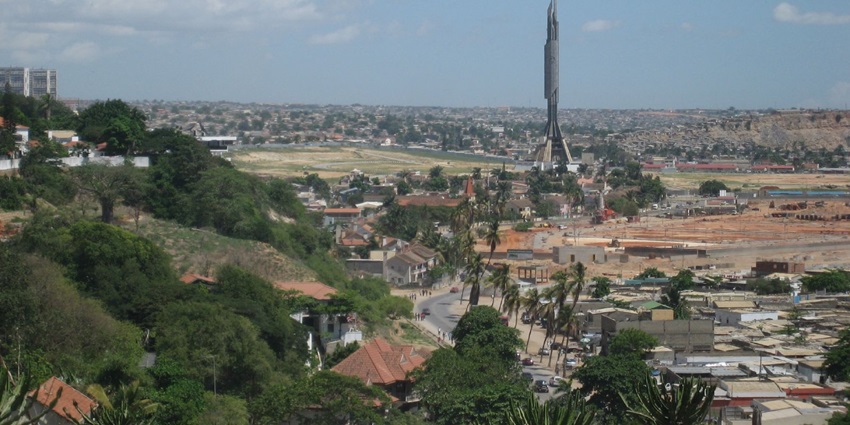
Photo: Erik Cleves Kristensen / Wikimedia Commons
The Mausoleum of Agostinho Neto is a legendary monument in honour of Angola’s first president and independence fighter, Agostinho Neto. This skyscraper is one of Luanda’s most visible landmarks and iconic tourist hotspot among the places for Luanda trip. It is here that one can learn about Neto’s life, his contribution to the independence of Angola, and his work in literature and politics. The museum area contains historical records, photos, and personal items of Neto. The mausoleum’s architectural style is distinct and makes it a notable feature, while the gardens surrounding it offer a serene area for contemplation.
Distance: 4 km from the city centre
Best Time To Visit: October to April
Suggested Read: Places To Visit In South Africa
6. Benfica Market
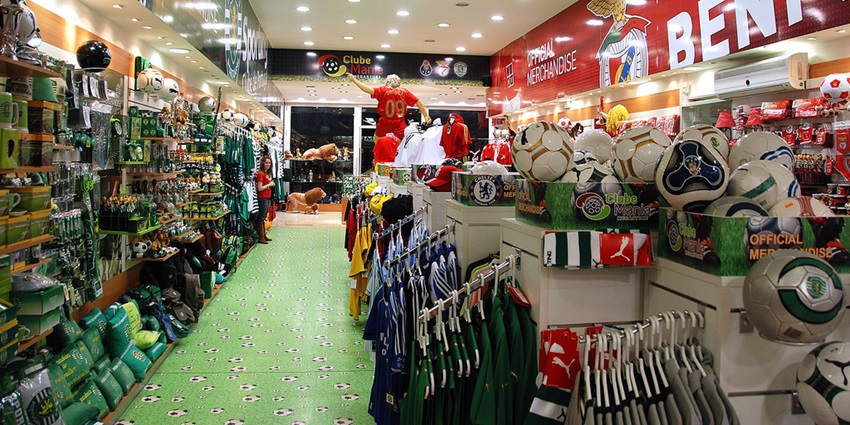
Photo: IK’s World Trip / Wikimedia Commons / Image For Representation Only
Benfica Market is the ideal shopping destination in Luanda to buy souvenirs and immerse yourself in the local culture. This outdoor market is renowned for its handmade products, such as wooden carvings, paintings, jewellery, and traditional attire. Vendors have a variety of Angolan art and decorative items for sale. Tourists may also try some local snacks and chat with hospitable vendors. The market is an energetic, colourful, and lively experience, a taste of Angolan craftsmanship and daily life.
Distance: 15 km from the city centre
Best Time To Visit: Year-round
7. Shipwreck Beach / Praia Do Santiago
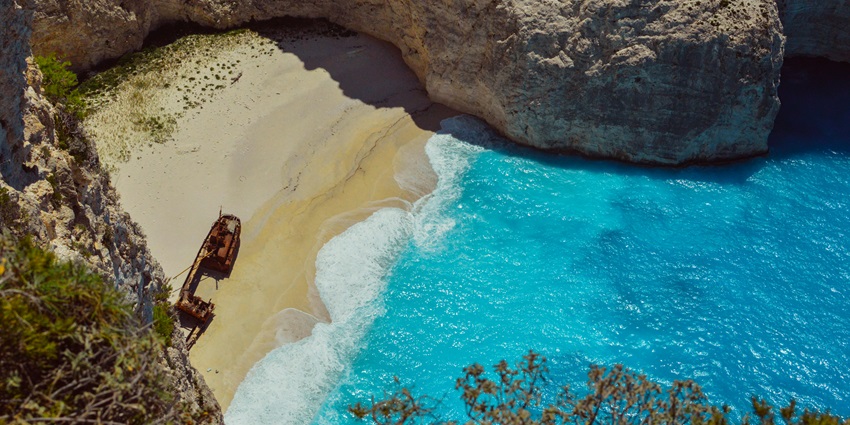
Photo: Lloyd Dirks / Unsplash / Image For Representation Only
Shipwreck Beach, or Praia do Santiago, is one of the world’s best attractions within the vicinity of Luanda. The beach is renowned for the rusting hulks of derelict ships that litter its shoreline, a surreal and hauntingly picturesque landscape. Aside from the shipwrecks, the beach itself is serene and can be a suitable place for a peaceful vacation. The similarity of the sea’s tranquil waves to the old and abandoned skeleton-like ships conveys a story about time and desolation and so is a singular place to visit.
Distance: 50 km from the city centre
Best Time To Visit: June to September
Suggested Read: The Ultimate Guide To The Best Beaches In Angola
8. National Slavery Museum
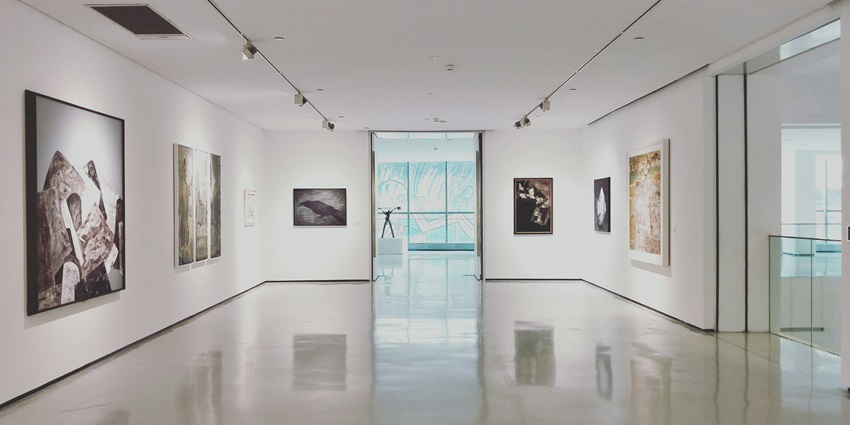
Photo: Dannie Jing / Unsplash / Image For Representation Only
The National Slavery Museum is a significant historical location that gives visitors an insight into Angola’s bitter past. Situated in what was once a chapel where enslaved individuals were baptized before being exported overseas, the museum features exhibits, chains, and documents related to the transatlantic slave trade. It is a powerful and informative experience, one that makes the visitor comprehend Angola’s involvement in the slave trade and the fight for freedom. It is a small but powerful museum, a historical journey through emotions.
Distance: 20 km from the city centre
Best Time To Visit: Year-round
9. Quiçama National Park
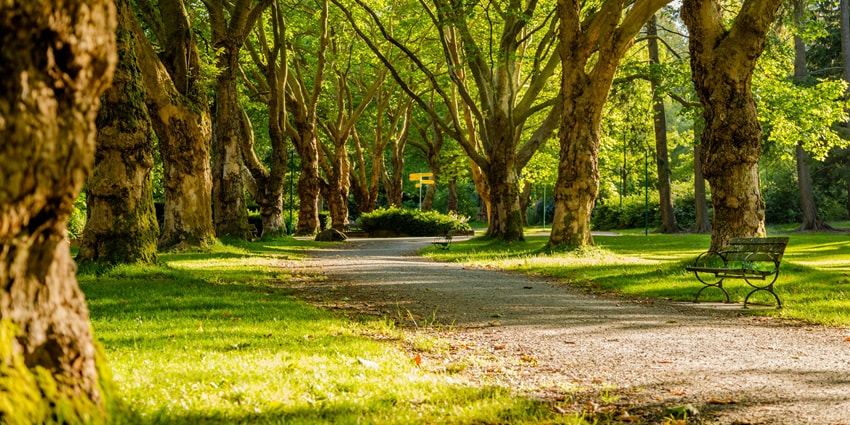
Photo: Mike Benna / Unsplash / Image For Representation Only
Quiçama National Park is Angola’s premier wildlife sanctuary, located just outside Luanda. This vast park is home to a variety of wildlife, including elephants, giraffes, zebras, antelopes, and numerous bird species. Visitors can embark on guided safari tours to observe Angola’s diverse fauna in its natural habitat. The park’s landscape ranges from dense forests to expansive grasslands, offering breathtaking scenery. Bordered by the Kwanza River, it also provides opportunities for boat safaris and fishing. Quiçama National Park is a haven for nature lovers and adventure seekers looking to experience Angola’s wildlife up close.
Distance: 70 km from the city centre
Best Time To Visit: June to September
Suggested Read: Angola Travel Guide
10. Mussulo Island
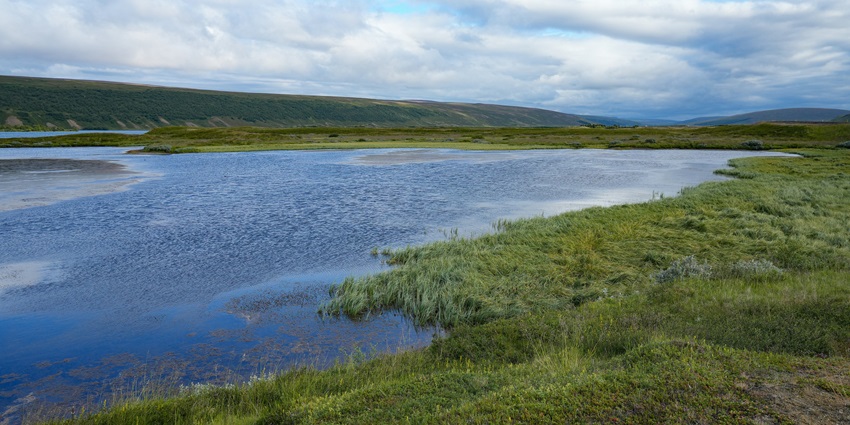
Photo: Markus Kammermann / Unsplash / Image For Representation Only
Mussulo Island is a tropical retreat off the coast of Luanda, known for its crystal-clear waters, pristine white sandy beaches, and swaying palm trees. It is a popular getaway for both locals and tourists, offering activities such as jet skiing, kayaking, and fishing. Visitors can savour freshly caught seafood at beachfront restaurants or simply relax under the sun. The island’s tranquil atmosphere provides a perfect escape from the city’s hustle and bustle, making it an ideal destination for both adventure seekers and those looking for a peaceful retreat.
Distance: 15 km from the city centre
Best Time To Visit: June to September
11. Ilha Do Mussulo
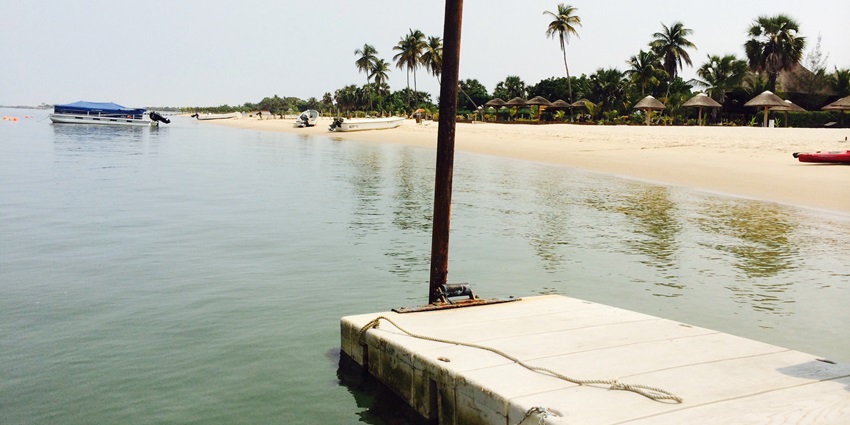
Photo: Ilenekrall / Wikimedia Commons / Image For Representation Only
Ilha do Mussulo is a peaceful island near Luanda, perfect for a beach escape. It has calm waters, palm trees, and soft sand. You can relax, swim, or enjoy fresh seafood at local huts. Boats take you there in just a few minutes from the city. It’s a favorite weekend spot for both locals and tourists. If you’re making a list of Things To Do In Luanda, spending a sunny day on Ilha do Mussulo should be near the top.
Distance: 12 Km
Best Time To Visit: May to October
Suggested Read: Nightlife In Angola
12. Marginal, Avenida 4 De Fevereiro
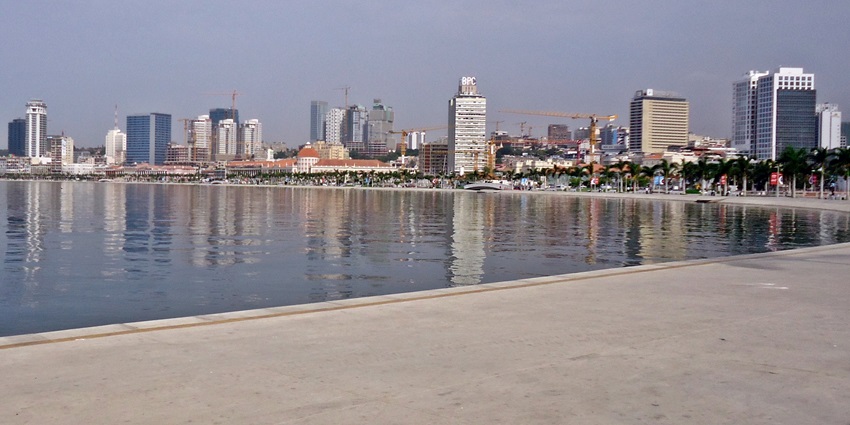
Photo: Fabio Vanin / Wikimedia Commons
Marginal, also known as Avenida 4 de Fevereiro, is a lively seafront road in Luanda. It offers great views of the bay, city skyline, and sunsets. You can walk, jog, or just sit and enjoy the breeze. At night, the area comes alive with lights, music, and people. Cafes, bars, and lounges nearby make it a top place to hang out. It’s a popular spot to enjoy the nightlife in Luanda with friends or relax after a long day.
Distance: 1–2 km
Best Time To Visit: March to September
13. Sangano Beach
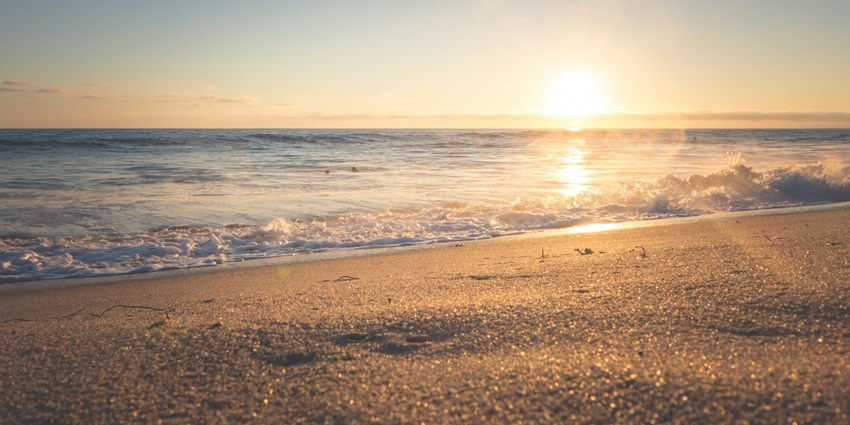
Photo: Jeremy Ricketts / Unsplash / Image For Representation Only
Sangano Beach is a quiet coastal escape just south of Luanda. It has fine sand, gentle waves, and wide blue water. You can swim, sunbathe, or walk along the shore while enjoying fresh sea air. Small local restaurants offer seafood and cold drinks. It feels calm and natural, away from city noise. Any good Luanda Travel Guide will recommend spending a lazy beach day at Sangano for a peaceful break from urban life.
Distance: 80 km
Best Time To Visit: May to October
Suggested Read: Airports In Angola
Luanda is a city that is rich in history, culture, and stunning scenery. From the peaceful beaches of Mussulo Island to the historic value of Fortaleza de São Miguel, the city has something to offer in every corner. Whether you are discovering the scenic coastline, delving into the city’s rich history, or indulging in its vibrant nightlife, Luanda has something for all travellers. Book your next Luanda trip with TripXL and indulge in the beauty and charm of this amazing destination.
Cover Photo: Carlos César / Pexels


 WhatsApp
WhatsApp
 Twitter
Twitter









